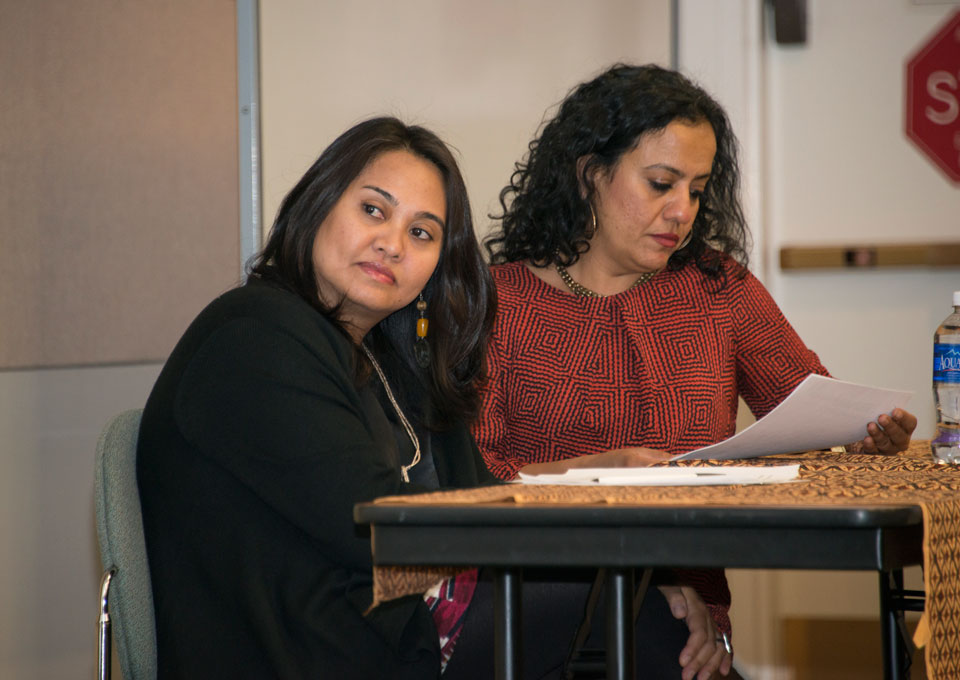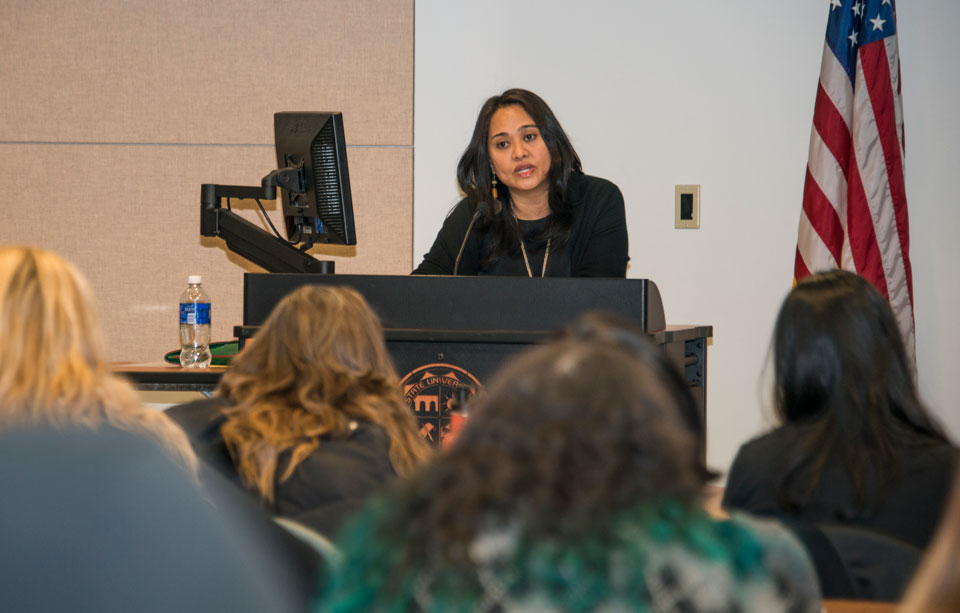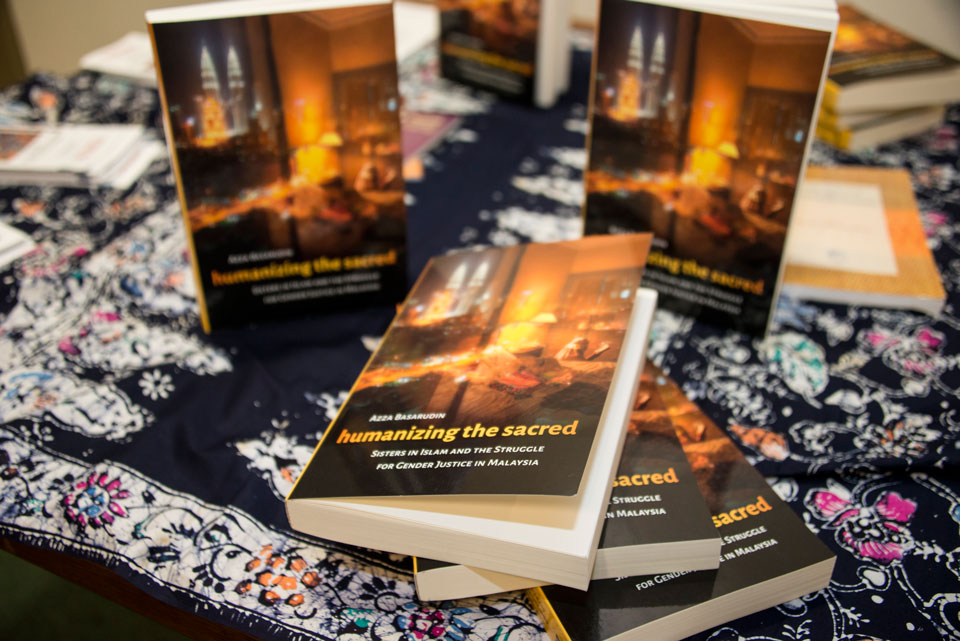CSUN Hosts Book Talk on the Struggles of Islamic Activist Group’s Fight for Gender Equality
California State University, Northridge’s Department of Gender and Women’s Studies hosted a book talk Nov. 17 on gender equality in Muslim communities in Southeast Asia.
The event took place at the Delmar T. Oviatt Library and was organized by the Middle East and Islamic Studies (MEIS) program and co-sponsored by CSUN’s Department of Gender and Women’s Studies. The talk featured guest speaker and author Azza Basarudin, a scholar-activist with a Ph.D. in women’s studies from UCLA.
In her book Humanizing the Sacred: Sisters in Islam and the Struggle for Gender Justice in Malaysia, Basarudin examines the work and challenges of the nongovernmental organization Sisters in Islam (SIS), a group of feminist advocates working in Malaysia.
“They tell people that there’s not just one way to life,” Basarudin said. “I wanted to understand the work they did.”
SIS was founded by a group of educated Malaysian Muslim women-activists challenging institutionalized Islamic authority and trying to reform laws in Malaysia.
According to Basarudin, SIS works to establish a sacred constitution that embraces gender justice and equality, rather than following the rules of the State.
“They became very well known after 9/11,” Basarudin said, adding that many Western countries have offered to help fund SIS.
“But they have rejected much the funding that was offered to them [because] they don’t need that additional stigma attached to them, of having foreign donors,” Basarudin said. “They are very careful about where their funding comes from.”
Khanum Shaikh, a professor in Women’s Studies, organized the event and invited all CSUN students — particularly students in the Women’s Studies and Middle East and Islamic Studies programs — to attend and learn about Basarudin’s ethnographic study of Muslim female activists.
Shaikh has known Basarudin for several years and invited her to CSUN shortly after the activist’s book was published.
“We went to UCLA together and got our Ph.D.s together in Gender and Women’s Studies,” Shaikh said.
Too many people have adopted a one-sided perception of Islam and Muslims due to perpetual media coverage of groups like ISIS and the Taliban, which makes it important to raise awareness about groups and individuals who are fighting to push for a different path, the professor said.
“The only information about Islam and Muslim communities revolves around terrorism and Islamic fundamentalism right now,” Shaikh said. “But it is really important to see that there is so much activism happening from within Muslim communities that is fighting any regressive interpretation of Islam.”




 experience
experience